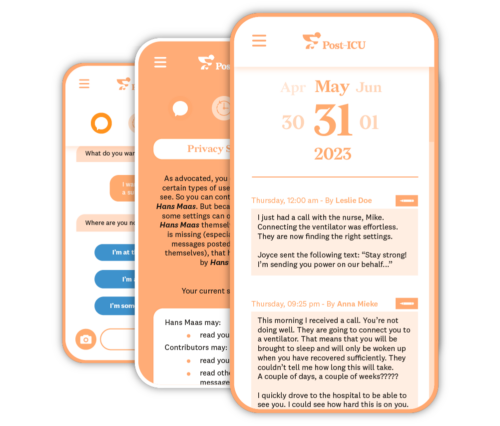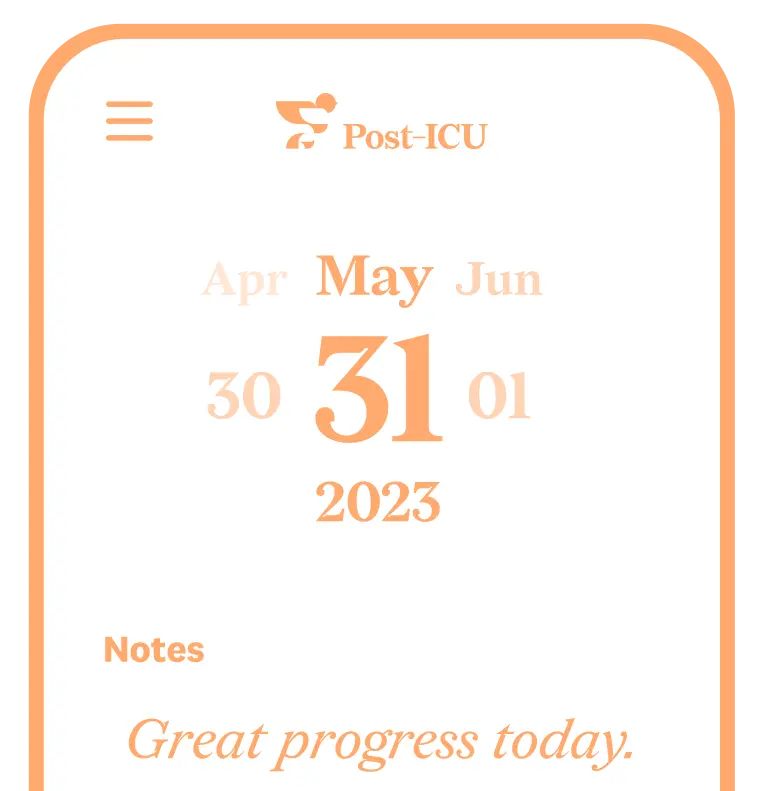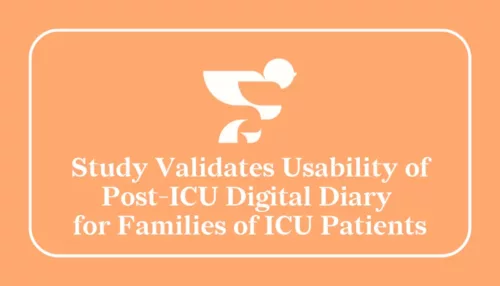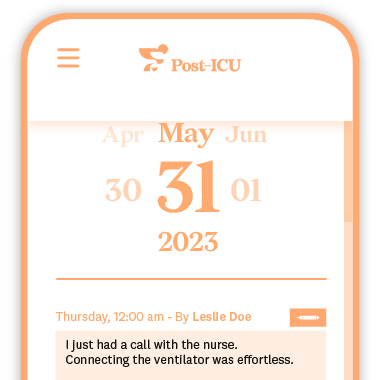Post-ICU, the digital diary for ICU-patients and their loved ones, has closed a €1.000.000 funding round to expand its sales and operations in the US territory from Brabantse Ontwikkelings Maatschappij (BOM) and InZet.
Why the Post-ICU diary?
The Post-ICU diary has been scientifically proven to reduce Post Intensive Care Syndrome (PICS). The aim is to triple the amount of ICU beds that are currently equipped with its digital diary by the end of 2024 to over 2000 beds.
Being admitted into an Intensive Care Unit (ICU) is a traumatic experience for the patient, as well as their family. At least 25-50% of ICU-survivors will develop problems like memory loss, trouble with processing and problem solving, anxiety, or even depression. These symptoms are known as Post-Intensive Care Syndrome (PICS). But it’s not only the patient that suffers from an ICU admission: family members often experience the admission as a trauma as well. Up to 75% of family members will develop anxiety, and up to 42% will have symptoms of posttraumatic stress disorder. These consequences for family members of ICU patients are referred to as PICS-Family (PICS-F).

Positive experiences in the Netherlands
By June 2023 more than 25 hospitals have adopted the digital diary as part of their family-care or person-centered care approach in the Netherlands and United States. The Catharina Hospital in The Netherlands has been one of the first hospitals to work with Post-ICU. They said they have seen many positive results over the past years, and not only for patients and families: “Not only do patients and families benefit from journaling about their experiences, emotions and important events, we also see that it has a positive impact on the engagement of our nursing staff. It contributes to their primary caring task and improves the much needed cooperation between staff and family in the care for the patient.”
The investment in the digital diary is needed to scale up the product in the United States. There are over 115.000 ICU beds in the US, compared to 1150 in the The Netherlands, making it the largest contingent of ICU beds in any country in the world. The investment will be used to start marketing and sales and to deploy the first hospitals with Post-ICU. The first hospital in the US currently using the digital diary is Griffin Hospital in Derby, CT.
Meet the investors
Brabantse Ontwikkelings Maatschappij (BOM) is one of the two main investors for the innovative ICU diary. Remie Bastiaansen, Investment Manager, explained their reason for the investment: “When we understood that an ICU diary was being advised by many professional critical care associations, we saw the potential of the digital equivalent. For hospitals, this is one of the most cost effective interventions on the ICU, while also contributing to patient satisfaction.”
The other investor in Post-ICU is InZet. Jelena Jakulj, partner at InZet, explained that “The quality of life of ICU survivors and their families is an often overlooked aspect of critical care, which is aimed at survival. InZet aims with its investments to make a meaningful impact beyond financial gains only. The digital Post-ICU diary has proven itself during the pandemic, when tens of thousands of ICU patients and families experienced how journaling helped them recover from the trauma they endured.”


Post-ICU’s CEO, Seth van der Meer, is very happy with the support and confidence from the new investors. “The investment grants us the opportunity to fight PICS and PICS-F in the country that has the highest number of ICU beds in the world. We are deeply grateful, and immensely excited, to be able to bring the digital diary to a growing number of US hospitals. The investment will also help us to keep improving our product and maintaining the highest privacy and security norms.”
An ICU survivor’s personal experience
An ICU survivor explains in his own words what the digital Post-ICU diary means to him: “By being able to read back what I experienced on the ICU, I could finally give context to the anxiety I experienced. I had fears that I could not explain and nightmares about being suffocated by doctors or nurses. Being able to discuss this with the aftercare nurse brought me big relief and eased my anxiety.”



















